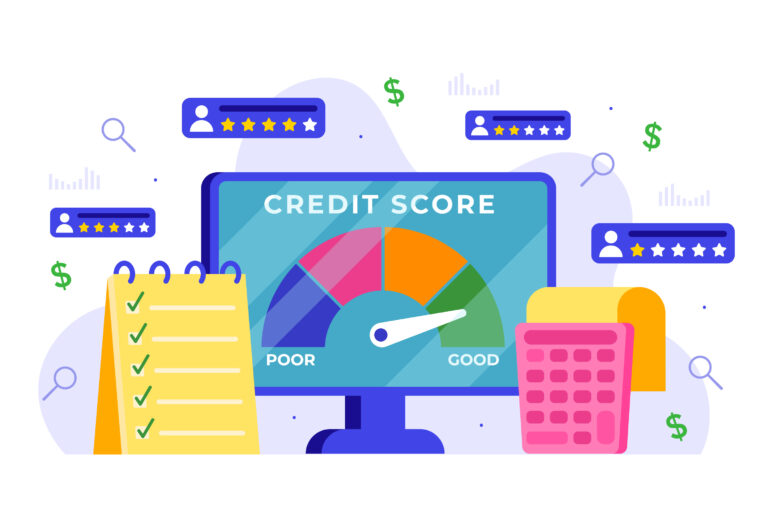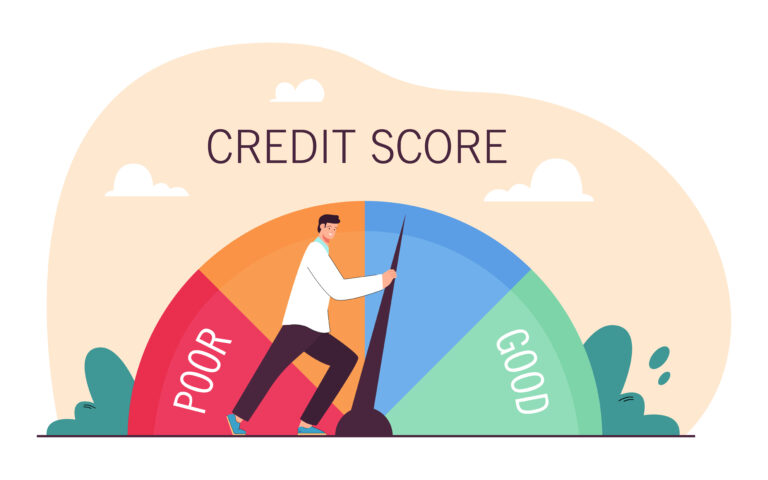Credit Score Problems? How Healthcare MSMEs Can Fix Loan Rejections Now
Table of Contents
Introduction
Getting a business loan rejected can be frustrating, especially for small clinics, pharmacies, and healthcare MSMEs that need urgent funds for growth or survival.
You fill out applications, submit documents, and still receive a rejection letter without much clarity on what went wrong.
But here’s the good news: most loan rejections happen for a few common reasons. And with the right steps, you can fix them fast.
This blog explains why small healthcare MSMEs often face loan rejections and how to improve your credit score, documentation, and financial readiness to get your loan approved next time.
What Is a Credit Score?
Your credit score is a 3-digit number between 300 and 900 that shows how reliable you are in repaying loans.
It is maintained by credit bureaus like CIBIL, Experian, and Equifax.
For businesses, a separate business CIBIL score or credit report is also created based on repayment behavior, cash flow, and digital transactions.
A higher score (above 750) means better chances of getting loans at a low interest.
Why Small Healthcare MSMEs Face Loan Rejections
1. Low or Poor Credit Score
Many MSMEs don’t monitor their credit scores.
If your personal or business CIBIL score is below 700, most banks and NBFCs will reject your loan application.
Late payments, maxed-out credit cards, or even credit report errors can pull your score down.
2. Weak Cash Flow or Income Records
Even profitable businesses may show weak cash flow if income is seasonal, poorly recorded, or mostly in cash.
Lenders look at bank statements, GST filings, and ITRs to assess financial health.
3. Incomplete or Wrong Documents
Missing KYC papers, wrong PAN numbers, or unregistered business entities often lead to rejections. Proper documentation is critical for trust and verification.
4. No Collateral
If you apply for a secured loan but cannot offer property, equipment, or fixed assets as collateral, your application may be declined.
5. Unrealistic Loan Requests or Plans
If your business plan is vague or overly ambitious, or your loan amount doesn’t match your revenue, lenders will doubt your repayment ability.
6. New Business or High-Risk Category
Lenders prefer businesses with at least 2 years of operations. New clinics, pharmacies, or labs might be seen as risky, especially without digital records or formal registration.
How to Fix Loan Rejections as a Healthcare MSME

1. Improve Your CIBIL Score (Personal + Business)
- Pay EMIs and bills on time, every time.
- Clear overdue credit card balances and old debts.
- Don’t apply for too many loans at once.
- Check your credit report (from CIBIL, Experian) and correct errors.
Example: Dr. Shweta, who runs a small dental clinic, improved her score from 660 to 750 in six months by paying down her working capital loan and avoiding new credit.
2. Prepare Clean Financial Documents
- File your ITRs, GST returns, and keep updated profit-loss and balance sheets.
- Use a dedicated current account for your clinic or pharmacy.
- Use accounting tools like Vyapar, Zoho, or Tally for clear and consistent reports.
3. Show Clear Cash Flow
- Follow up on payments from patients or insurance.
- Reduce unnecessary expenses.
- Create a cash flow forecast and show how the loan will help you generate revenue.
4. Create a Realistic Business Plan
- Clearly explain how you’ll use the loan—e.g., buy dental chairs, open a second branch, restock pharmacy shelves.
- Add realistic revenue and profit goals based on past data.
- Keep it short, visual, and supported by market research.
5. Apply for the Right Loan Amount
- Don’t apply for ₹20 lakh if your annual income is only ₹10 lakh.
- Match the loan amount to your repayment capacity.
- Use loan eligibility calculators before applying.
6. Match Lender Requirements
- Read lender criteria: turnover, age of business, documents needed.
- Register under Udyam/MSME to access special government loan schemes like CGTMSE.
7. Choose the Right Lenders
Instead of only going to banks, consider:
- NBFCs like Lendingkart, Kinara Capital, Aye Finance
- Fintech apps like Indifi, FlexiLoans, BharatPe
- Government schemes under SIDBI or Stand Up India
These options are more friendly to healthcare MSMEs with limited paperwork or low credit history.
8. Use Digital Payments to Build Credibility
- Accept payments via UPI, cards, and POS terminals.
- These transactions leave a financial footprint, which some lenders now use for evaluating loans.
- Your consistent digital income can substitute for traditional income proof.
Common Mistakes to Avoid
- Sending incomplete or incorrect documents
- Applying for too many loans at once
- Giving vague answers about loan usage
- Not checking your credit score before applying
- Not updating your business plan or financials
Real-Life Example
Ravi runs a diagnostic lab in a tier-3 town.
His first loan was rejected due to a poor credit score and missing GST filings.
He worked with a CA to clean up his books, registered under Udyam, switched to UPI payments for all patients, and re-applied after 3 months.
Result? ₹7 lakh loan approved by an NBFC.
Conclusion
Loan rejections are not the end. It’s feedback.
Most small healthcare MSMEs in India face loan rejections due to poor credit scores, weak documentation, or mismatched applications. But every problem has a fix.
Start by building your CIBIL score, using digital payments, keeping clean financial records, and applying only to the right lenders.
With small, consistent improvements, you can unlock funding, grow your business, and serve more patients with confidence.
FAQ
- What is the minimum CIBIL score to get a business loan?
Most banks prefer a score of 700 or above. NBFCs may accept 650+ with other supporting documents.
- Can I get a loan without collateral?
Yes, many NBFCs and fintech platforms offer unsecured loans. Also, government schemes like CGTMSE support collateral-free loans for MSMEs.
- Does UPI payment help in getting loans?
Yes. Digital payment data can show income proof and help lenders trust your business, especially if you don’t have formal documentation.
- How long does it take to improve a bad CIBIL score?
With consistent EMI payments and reduced credit usage, improvement can be seen in 3–6 months.
- Can a rejected loan application hurt my credit score?
If too many loan inquiries are made in a short time, it can lower your score. Apply only after fixing issues.
Also Read,
- The Ultimate Guide: Working Capital Loans for Small Business (MSMEs) in 2025
Understanding the Impact of Payment Terms on Working Capital for Clinics
How Poor Inventory Management Hurts Working Capital in Pharmacies.
Want a Better Business Credit Score? Small Pharmacies Can Now Use UPI & Cards to Build It
Want a Better Credit Score? Use Small Daily Payments to Build Your CBIL (For Clinics & Pharmacies)
Case Study:How a Small Clinic Improved Its Working Capital Management





